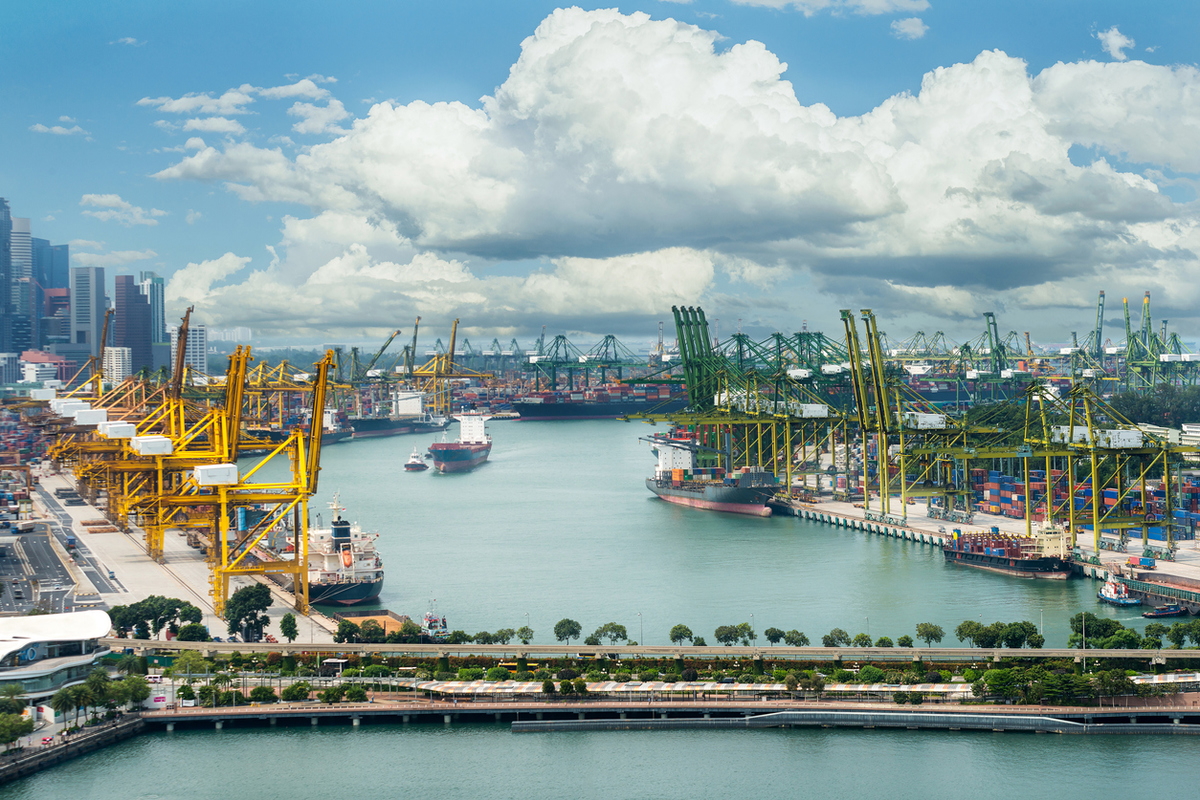GCMD to run bio-bunker test project across three continents
Testing is expected to run for 12-18 months and involves 12 vessels that will bunker B30 biofuel blends in Singapore, Rotterdam and Houston.
 PHOTO: Singapore cargo terminal, one of the busiest in the world. Getty Images
PHOTO: Singapore cargo terminal, one of the busiest in the world. Getty Images
Singapore-based Global Centre for Maritime Decarbonisation (GCMD) and other 18 industry partners say they have launched the project to assess how well biofuel works as a drop-in fuel, and to strengthen its supply chain.
GCMD is looking to find out whether costs for biofuel blending can be brought down, see how compatible biofuels are in blends with conventional fuels, as gauge its greenhouse gas emissions on a well-to-wake basis.
It argues that economies of scale for bio-bunkers across major ports can help bring down costs. A B30 blend, with 30% fatty acid methyl esters (FAME) blended with 70% VLSFO or MGO, has been shortlisted for testing as it is more readily available, GCMD says.
Other than GCMD, the consortium is made up shipping firms, energy companies, engine manufacturer, fuel testing lab and consulting group. The pilot runs are expected to start on from 1 August.
“By facilitating and creating an optimised drop-in green fuels supply chain, this pilot will help to shape national and international standards of biofuels bunkering and lower the barrier for their wider adoption to reduce greenhouse gas emissions from a lifecycle perspective,” said GCMD’s chief executive Lynn Loo.






